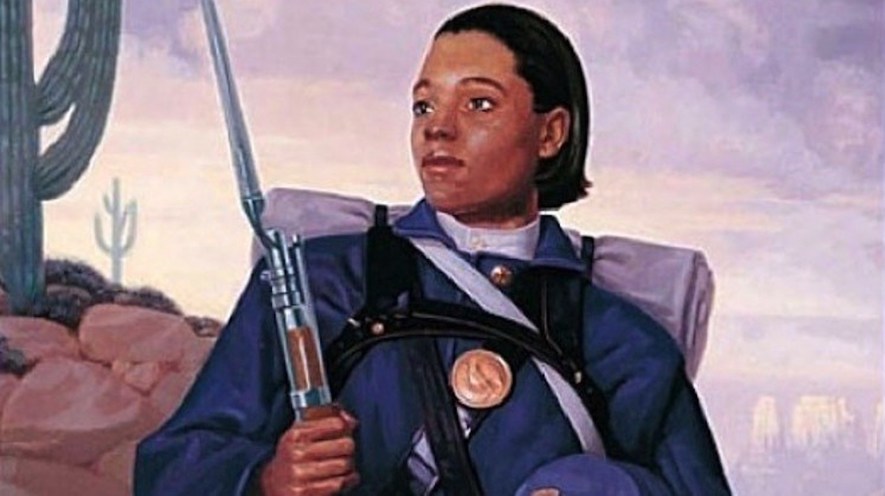
Nearly 80 years before women officially were allowed to serve in the U.S. Army, former slave Cathay Williams did so, patrolling the western United States as a member of the all-black Buffalo Soldiers.
Cathay was not unfamiliar with military life. She was a slave in Jefferson City, Mo., until the Union Army liberated her, at which point she traveled with the troops, working as a cook and laundress. But when the Civil War ended, so did Williams’ job.
Needing work, she enlisted in the Army—as a man, William Cathay. But being illiterate, she couldn’t spell her “last” name, and her service was recorded under the name William Cathey. Standing 5 feet 9 inches, Cathay was taller than her fellow privates and garnered no undue curiosity or suspicion.
Historians make much of Williams’ trailblazing service. But, she didn’t do it for fanfare or to pave the way for women in the military. She didn’t have the luxury to consider her legacy. Her benign deceit was practical: A male soldier would earn more than a female cook.
“I wanted to make my own living and not be dependent on relations or friends,” she declared.
The most distinguishing characteristic of her Army career was her repeated hospitalizations (posthumous analysis determined that she suffered from diabetes, as evidenced by the amputation of all 10 toes prior to her death). Incredibly, five hospital visits during her soldier days didn’t yield her secret. In fact, her discharge, after nearly two years of service, never mentioned Williams’ womanhood. Her commanding officer cited Cathey “unable to do military duty” due to disability.
Still, the history is up for debate: Some sources claim she was discovered as a woman, while others say she was discharged with no one the wiser to her female identity.
After her discharge, Williams returned to life as Cathay Williams, working in the very jobs she tried to avoid by enlisting as a Buffalo Soldier. She was a cook and a laundry woman before being hospitalized again, this time in Colorado, her final home. After over a year in the hospital she was bereft of money. What could she do? She harkened back to her days in the Army and applied for a military pension. Her application was denied—but not because, as a woman, she had served in the Army illegally. Instead, authorities declared she had no physical disability, even though she had been discharged because of a pre-existing disability.
Still today, it is unknown whether the Army knew that William Cathey ever was Cathay Williams, a lone female making her way in the world.